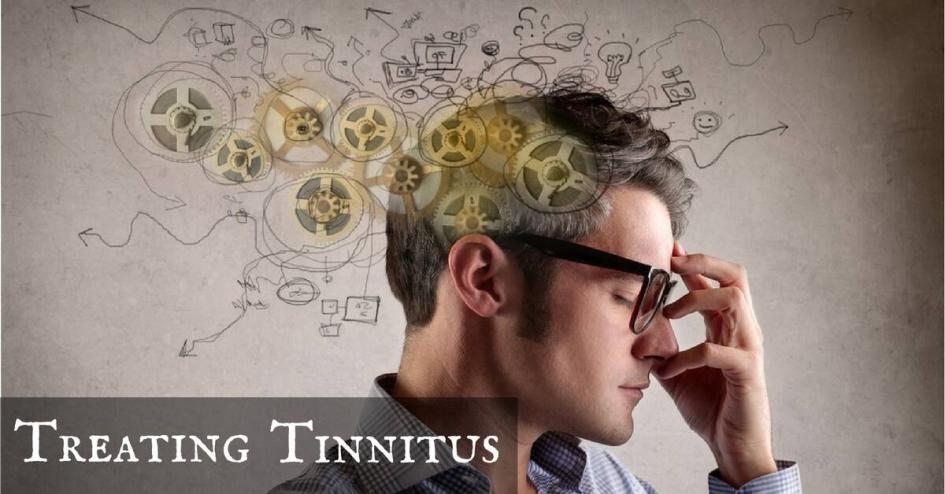
All About Tinnitus Part 3: Tinnitus Treatment
All About Tinnitus Part 3
Treating Tinnitus
Scientists are still learning more about tinnitus, and as yet, there is no quick fix “cure” for the condition. Treatment depends on the type of tinnitus, its causes and what a patient personally responds to. Last time, we discussed the types and causes of tinnitus. Tinnitus caused by an underlying health condition can often be treated fairly quickly. For long-term cases where no cause can be identified, treatments focus on healthy management of symptoms.
In this last part of our three-part series on tinnitus, we explore the treatments available for tinnitus.
Underlying health conditions
If tinnitus is caused by an underlying health problem, the symptoms usually clear up once the problem is treated. For example, tinnitus caused by a build-up of earwax can be resolved or lessened by a course of eardrops or ear irrigation.
Long-term tinnitus
Learning to live with long-term tinnitus can feel daunting, but many people find that their symptoms improve or even fade away over time. Tinnitus treatments focus on helping you cope with and minimize symptoms on a daily basis. There’s no one-size-fits-all solution, and what works for one person may not work for another. It’s about finding what works best for you.
Correcting hearing loss
If you have untreated hearing loss, straining to hear can make tinnitus worse. Correcting a hearing loss means that your brain doesn’t have to work as hard to identify sounds and can ignore tinnitus more easily. Wearing a hearing aid will help you hear a wider range of sounds, which in itself can help to mask the sounds of tinnitus. Many hearing aids offer in-built tinnitus management programs, sound generators (see below) and downloadable smart apps to help manage symptoms.
Sound therapy Tinnitus is more noticeable in quiet environments. Sound therapy focuses on filling silence with neutral background noise, which helps to mask symptoms and make them less irritating.
- Sound generators Sound generators are available in many different forms. They play gentle natural sounds or low-level white noise (a continuous ‘shushing’ sound) to soothe tinnitus symptoms. Natural sounds often include ocean waves and rustling leaves, which have a dynamic and calming quality.
- Household items You may find everyday items can help to suppress tinnitus sounds. These can include fans, radios, televisions and indoor water features. Sometimes even opening a window and allowing natural sound into the room can be useful.
Self help
Many people with tinnitus use a variety of everyday tactics to cope with the condition positively. Stress and tiredness can make tinnitus symptoms worse, so maintaining a balanced and healthy lifestyle can help alleviate symptoms.
- Sleep routine Stick to a regular sleep pattern and avoid stimulants (coffee, alcohol) before bedtime.
- Relaxation Yoga, meditation and deep breathing exercises can help.
- Controlling your background noise Playing calming sounds, ambient noise and natural sounds can help you relax, especially in the quiet moments before you sleep.
Counselling and therapy Living with tinnitus can be emotionally stressful and it can help to talk. Many people find that regularly discussing their experiences can help them to manage their condition more effectively.
- Tinnitus-focused counselling
Counselling is usually carried out by a hearing therapist, audiologist or doctor. It aims to help people productively change their approach to their condition.
- Tinnitus retraining therapy (TRT) TRT gradually retrains your brain’s reaction to tinnitus. It combines intensive sound therapy with long-term counselling, to help people learn to tune out certain sounds and take back control of their listening experience. TRT should only be carried out by trained professionals. Our audiologists at House of Hearing offer TRT as a treatment – contact us to find out more.
- Support groups Sharing your experiences with other people who have personal experience of tinnitus can be reassuring and offer valuable mutual support. Action on Hearing Loss have a community forum for people living with tinnitus. The British Tinnitus Association has a list of local groups and information about starting your own group.
Tinnitus is a complex condition, but it can be managed and treated effectively. If you’ve been experiencing symptoms and would like to discuss your treatment options, our audiologists are happy to help. Contact us via our website or give us a call on 0131 220 1220.
You don't have to live with untreated hearing loss or tinnitus.
Let us help.
House of Hearing
0131 220 1220
Our Clinics
All House of Hearing clinics are in town centre locations and accessible to public transport and parking. Home visits also available if mobility is an issue.


.png)
.png)
.png)

.png)
